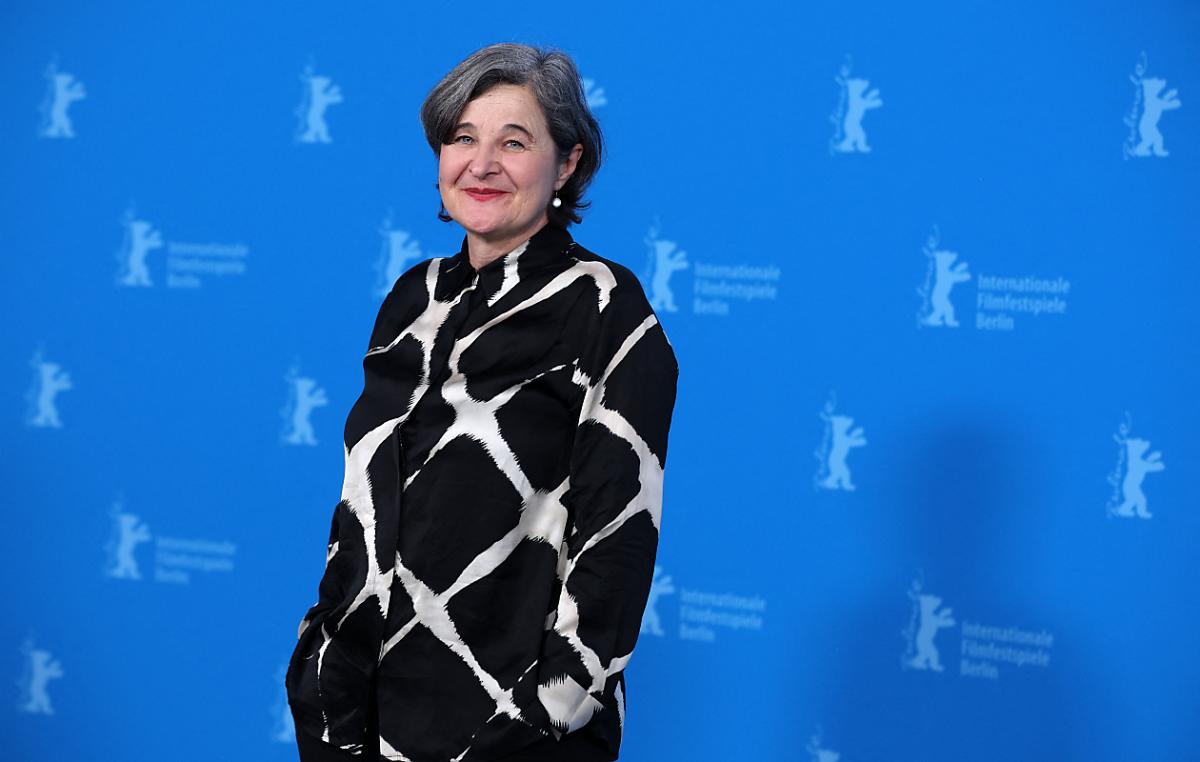She walked the red carpet of the Venice Film Festival amidst a storm of lightbulbs, received numerous awards, and is currently a major presence on screens, yet she is completely devoid of stars: Maria Hofstadter is one of Austria's most prominent actresses. On March 30, the Upper Austrian celebrates her 60th birthday and admits: Nothing bothers her more than not having her work honored.
In “Des Teufels Bad” by Veronica Franz and Severin Fiala, she can be seen as a cheerful mother-in-law who does not make her daughter-in-law's simple life in rural Upper Austria circa 1750 any easier. In the TV documentary “Uprising in the Brothel” she recently played a mother in a 19th century Viennese brothel, and in the ORF mystery thriller series “Schnee” she played a wealthy Tyrolean hotel owner. She has a supporting role in the new Netflix film “The Lovers,” and has also appeared in front of the camera as a social scientist in the Canal+ and ARD series “A Better Place,” scheduled to premiere in December. Maria Hofstadter is in great demand and is by no means limited to a specific genre.
This self-taught actress was born in Linz on March 30, 1964. She traded her studies in history and psychology for acting and began her career in cabaret. “I was soon seen as a funny popular actress. I could have served that more,” she once said in an interview with APA. But she hates the dove as well as the routine. That is why her work with the Theater Project, which she has directed with Dietmar Negsch since 1995, has always been as important to her as her film work, where she quickly matured into a character actor.
She has worked with filmmakers such as Paul Harrather in “Indien” (1993), Michael Glouger in “Die Ameisenstraße” (1995), Harald Secheritz in “Hinterholz 8” (1998), Peter Beyer in “Villa Henriette” (2004) and Marc. Rothemund in “Sophie Scholl – The Last Days” (2005). Her collaboration with director Ulrich Seidl became a career boost that Hofstadter never sought. The scenes in which she constantly talks, the crazy traveler Anna in “Hundstage” (2001) made Austrian cinema history, as did her strict Catholic nurse Anna Maria in “Paradies: Faith” (2012), who goes from house to house on a missionary basis. The relationship, as masochistic as it is sensual for the adored Jesus, caused confusion and proved that when Maria Hofstadter accepts a role, she puts her heart and soul into it.
That's why her debut as a TV commissioner in Nicholas Lightner's rural crime thriller “The Dead by the Pond” (2015) did not become a life's work: “Soon I didn't know what to look like when I discovered something.” Since then, she has continued to stick to her motto: “Don't invent anything frantically, don't allow yourself to be forced to be original, be completely natural and tell the story calmly…” she said at the time.
Maria Hofstadter, winner of the Grand Acting Prize (2013), the Austrian Film Prize (2014 and 2022), the German Acting Prize (2021), and the Rummy Prize (2022), among others, has worked with Michael Haneke (“Wolfzeit”) and Joseph Hader (“Mouse Wild”) or Arman te Reah (“The Fox in the Burrow”). But she became truly famous as the wife of the city mayor in David Schalko's cult series “Braunschlag”. But hard work and interesting tasks are much more important to her than popularity. “My motto has always been: Keep fixed costs low and do projects yourself instead of waiting for the call! This prevents feelings of helplessness and existential fears,” she said in 2015. These feelings should have gone away by then.

“Travel aficionado. Certified problem solver. Pop culture guru. Typical writer. Entrepreneur. Coffee trailblazer.”








More Stories
Magic Abba – Europe's #1 Music Show Live with the Band
Joseph Hader faces 'turbulence surrounding a peaceful person'
Live streaming platform Kino VOD Club brings focus to Graz